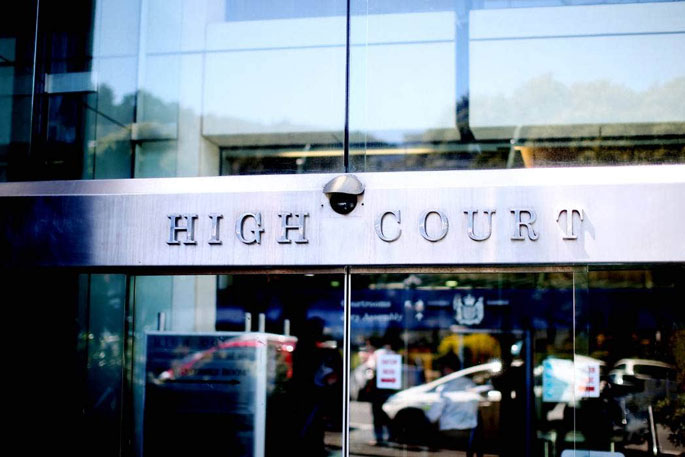Bay of Plenty councils are worried the yet to be determined fine print behind iwi marine titles and customary rights could halt or destroy an Ōpōtiki Harbour project.
On the second day of boundary hearings in the Wellington High Court, Ōpōtiki District Council voiced concerns that without protection the harbour project could be sunk.
Whakatōhea iwi and neighbours Ngāti Awa and Ngāi Tai received a landmark decision in May 2021, granting marine title and protected customary rights to the coastline stretching from Whakatāne and Ōpōtiki.
This week iwi, hapū and other interested parties returned to Wellington High Court to determine where their authority will lie under the Takutai Moana Marine and Costal Area Act 2011.
The outcome of the hearings is expected to set a precedent for the other 200 active applicants across Aotearoa New Zealand.
In their opening submissions, lawyers representing iwi and hapū expressed their concerns about shared or single authority in proposed overlapping boundaries, a lack of communication between applicants to agree on boundary limits, restrictions that were hoped to be placed on wāhi tapu (sacred places), and introduced kaumātua (elders) who would provide evidence of hapū and iwi connection to wāhi tapu.
However, submissions from Ōpōtiki District Council and Whakatāne District Council were focused on the concerns their clients had that these newly recognised rights would interfere with their assets.
Marine customary title for the six Whakatōhea hapū stretches from Maraetōtara in the west to Tarakeha in the east and out to sea by 12 nautical miles. Those hapū jointly hold title with Ngāti Awa in the western part of Ōhiwa Harbour, as well as joint title with Ngāi Tai between Tarakeha and Te Rangi which extends out to sea by 12 nautical miles.
Hapū and iwi will have authority to veto resource consent applications that apply to their boundaries.
Tania Reweti, representing Ōpōtiki District Council, told the court that high-value national assets such as the Ōpōtiki Harbour Development Project and other community assets should be excluded from hapū and iwi authority.
Reweti said the councils had tried to come to an agreement with the applicants to allow all resource consents for the continued building of the development that had been issued in 2009, and the maintenance of the harbour once completed in 2023, as well as other consents issues for the continued use of public facilities on the coastal area.
However, the applicants declined that request during negotiations, leading the councils to apply for those areas to be excluded from the applicants' boundaries, Reweti said.
'While the support of some of the applicant groups was eminent in 2009, that support from the customary marine title groups is clearly not ongoing in terms of the maintenance of the project.
'These consents provide for the nationally significant harbour and support the economic wellbeing of the community,” Reweti told the court.
'These important and significant structures should be protected for future generations to enjoy.”
The hearing will continue on Wednesday with evidence from applicants regarding wāhi tapu.
CORRECTION: Lawyer Tania Reweti did not represent the Bay of Plenty Regional Council as was originally reported. She was acting on behalf of the Ōpōtiki District Council only.



1 comment
Talk softly while ......
Posted on 17-02-2022 10:38 | By SonnyJim
There's always the Public Works Act that could be dragged out if talking doesn't resolve matters.
Leave a Comment
You must be logged in to make a comment.